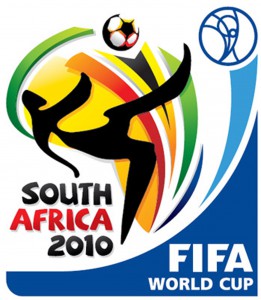The FIFA World Cup 2010: a risky business for South Africa?

Millions of football fans around the world are eagerly awaiting the kick off of the opening game to the FIFA World Cup 2010 this Friday 11 June. 32 nations will compete to be world champions in what promises to be the most watched sports event in history. This event is about much more than football; it’s a major source of internal and external investment for South Africa. South Africa has invested around $5bn in sporting and associated infrastructure – stadiums, roads, transport – getting 9 cities ready to host the series of 64 games, culminating in the final on 11 July at Soccer City. South Africa will aim to maximize its exposure as a holiday and business destination and showcase its major attractions during the four weeks of wall-to-wall media coverage. http://www.sa-venues.com/2010/johannesburg.htm FIFA has invested a further $1.1bn in the organization of the event, including projects such Football for Hope, which include 20 projects that combine football with education and public health initiatives for some of South Africa’s most needy young people. http://architectureforhumanity.org/node/825 FIFA has already generated more than $3.3bn from World Cup media rights sales, with the rights holding broadcasters set to sell some of their most expensive advertising spots of the year as games involving national teams and the latter stages of the competition promising massive audience shares.
South Africa has invested around $5bn in sporting and associated infrastructure – stadiums, roads, transport – getting 9 cities ready to host the series of 64 games, culminating in the final on 11 July at Soccer City. South Africa will aim to maximize its exposure as a holiday and business destination and showcase its major attractions during the four weeks of wall-to-wall media coverage. http://www.sa-venues.com/2010/johannesburg.htm FIFA has invested a further $1.1bn in the organization of the event, including projects such Football for Hope, which include 20 projects that combine football with education and public health initiatives for some of South Africa’s most needy young people. http://architectureforhumanity.org/node/825 FIFA has already generated more than $3.3bn from World Cup media rights sales, with the rights holding broadcasters set to sell some of their most expensive advertising spots of the year as games involving national teams and the latter stages of the competition promising massive audience shares.  FIFA’s partners (Adidas, Coca-Cola, Emirates, Hyundai, Sony and VISA) combine with the official World Cup sponsors (Budweiser, Castrol, Continental, McDonald’s, MTN, Mahindra Satyam, Seara and Yingli Solar) to form a team of multinational organizations aiming to maximum leverage of the $800m plus they have invested to be exclusive product category sponsors. The stakes are therefore high for the World Cup organizers and the hosts in particular. It’s not only the $6bn+, broadcast and sponsorship fees that have been invested in this event, the wider political and economic, social and cultural implications of its success or failure has to be considered. South Africa is still in transition and has faces serious development issues, such as HIV/AIDS infection rates and crime, which mean the risks are even higher if things don’t go to plan. The security of fans, players and officials remains a key concern and has been the focus of much media attention. Mega-event management is one of the riskiest businesses around; let’s hope that for the people of South Africa, the organizers and football fans around the world that everything goes to plan.
FIFA’s partners (Adidas, Coca-Cola, Emirates, Hyundai, Sony and VISA) combine with the official World Cup sponsors (Budweiser, Castrol, Continental, McDonald’s, MTN, Mahindra Satyam, Seara and Yingli Solar) to form a team of multinational organizations aiming to maximum leverage of the $800m plus they have invested to be exclusive product category sponsors. The stakes are therefore high for the World Cup organizers and the hosts in particular. It’s not only the $6bn+, broadcast and sponsorship fees that have been invested in this event, the wider political and economic, social and cultural implications of its success or failure has to be considered. South Africa is still in transition and has faces serious development issues, such as HIV/AIDS infection rates and crime, which mean the risks are even higher if things don’t go to plan. The security of fans, players and officials remains a key concern and has been the focus of much media attention. Mega-event management is one of the riskiest businesses around; let’s hope that for the people of South Africa, the organizers and football fans around the world that everything goes to plan.